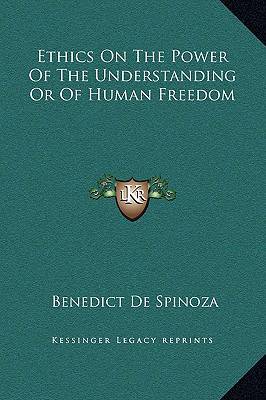
- Afhalen na 1 uur in een winkel met voorraad
- Gratis thuislevering in België vanaf € 30
- Ruim aanbod met 7 miljoen producten
- Afhalen na 1 uur in een winkel met voorraad
- Gratis thuislevering in België vanaf € 30
- Ruim aanbod met 7 miljoen producten
Zoeken
€ 44,95
+ 89 punten
Uitvoering
Omschrijving
""Ethics on the Power of the Understanding or of Human Freedom"" is a philosophical treatise written by Benedict De Spinoza. The book explores the concept of ethics and the relationship between human freedom and the power of the understanding. Spinoza argues that human beings have the power to understand the world around them and make decisions based on that understanding. He also discusses the role of reason in ethical decision-making and the importance of living a virtuous life. The book is divided into five parts, each of which explores a different aspect of ethics and human freedom. Throughout the book, Spinoza challenges traditional notions of morality and offers a new perspective on the nature of human beings and their place in the world. ""Ethics on the Power of the Understanding or of Human Freedom"" is a seminal work in the history of philosophy and continues to be studied and debated by scholars and students of philosophy today.From the third kind of knowledge necessarily arises the intellectual love of God. From this kind of knowledge arises pleasure accompanied by the idea of God as cause, that is (Def. of the Emotions, vi.), the love of God; not in so far as we imagine him as present (V. xxix.), but in so far as we understand him to be eternal; this is what I call the intellectual love of God.This scarce antiquarian book is a facsimile reprint of the old original and may contain some imperfections such as library marks and notations. Because we believe this work is culturally important, we have made it available as part of our commitment for protecting, preserving, and promoting the world's literature in affordable, high quality, modern editions, that are true to their original work.
Specificaties
Betrokkenen
- Auteur(s):
- Uitgeverij:
Inhoud
- Aantal bladzijden:
- 30
- Taal:
- Engels
Eigenschappen
- Productcode (EAN):
- 9781169181274
- Verschijningsdatum:
- 10/09/2010
- Uitvoering:
- Hardcover
- Formaat:
- Genaaid
- Afmetingen:
- 178 mm x 254 mm
- Gewicht:
- 276 g

Alleen bij Standaard Boekhandel
+ 89 punten op je klantenkaart van Standaard Boekhandel
Beoordelingen
We publiceren alleen reviews die voldoen aan de voorwaarden voor reviews. Bekijk onze voorwaarden voor reviews.











